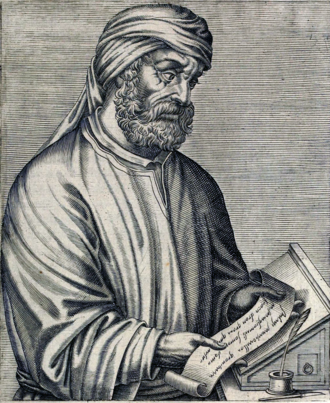The Father of Latin Christianity and His Treatise On Fasting

Tertullian was a prominent early Christian author and theologian in the late 2nd and early 3rd centuries AD, often called the Father of Latin Christianity. Born in Carthage (modern-day Tunisia) around 155 AD, he is recognized for his foundational contributions to Christian theology and Latin literature.
Tertullian’s Treatise on Fasting
One of Tertullian’s notable works is his treatise On Fasting (Latin: De Jejuniis), where he explores the spiritual discipline of fasting and its significance in the Christian faith. In this work, Tertullian offers insights into how fasting was practiced and understood in early Christianity, reflecting the early Church’s views on spiritual practices and self-discipline.
Tertullian’s Other Theological Works
In addition to On Fasting, Tertullian is also known for Apology, a defense of Christianity against pagan accusations, and On the Prescription of Heretics, where he argues against heretical interpretations of Christian doctrine. These works highlight Tertullian’s commitment to defending and clarifying Christian beliefs during a time of significant theological challenges.
Tertullian and the Montanist Movement
Later in his life, Tertullian became associated with the Montanist movement, a Christian sect known for its emphasis on prophetic gifts and strict moral discipline. This affiliation influenced his later writings, where he engaged deeply with various theological controversies and continued to shape Christian thought.
Explore Tertullian’s legacy to understand the roots of Christian practices and theological debates that continue to influence the Church today. >>More about Tertullian
Tertullian Book On Fasting
The book is rewritten for easy read.
Chapter 1: The Introduction
In the opening chapter of “On Prayer,” Tertullian sets the stage for his treatise by highlighting the significance of prayer in the lives of Christians. He begins by proclaiming that prayer is a divine institution, a sacred practice bestowed upon humanity by God Himself. It is through prayer that humans have the privilege of communicating with the Almighty.
Tertullian acknowledges that prayer is a universal concept found in various religious traditions, but he emphasizes that in Christianity, prayer takes on a unique form and purpose. For Christians, prayer is not merely an act of ritualistic repetition or a means to appease a distant deity. Instead, it is a deeply personal and relational connection with the Creator of the universe.
The author asserts that prayer is not limited to specific individuals or a select few who possess special knowledge or spiritual prowess. Rather, it is a gift available to all believers, regardless of their social status, education, or background. Tertullian emphasizes the inclusivity of prayer, affirming that every Christian, from the humblest to the most learned, can engage in this practice and experience its transformative power.
Furthermore, Tertullian highlights the importance of sincerity and authenticity in prayer. He cautions against empty and superficial prayers that lack genuine devotion and intention. Instead, he urges believers to approach prayer with a contrite heart, humbly acknowledging their dependence on God and expressing their deepest desires, concerns, and gratitude.
Tertullian also acknowledges the role of prayer as an expression of faith. He emphasizes that when believers lift their voices in prayer, they should do so with unwavering trust in the goodness and faithfulness of God. Prayer becomes an avenue through which faith is exercised and strengthened, and through which believers can experience the profound workings of divine providence.
Additionally, Tertullian underscores the importance of recognizing prayer as a spiritual discipline that requires effort and commitment. He encourages believers to cultivate a regular habit of prayer, integrating it into the fabric of their daily lives. By doing so, prayer becomes not merely an occasional exercise, but a constant and consistent dialogue with the Almighty.
In conclusion, the first chapter of “On Prayer” serves as an introduction to the treatise, laying the foundation for a deeper exploration of this essential Christian practice. Tertullian asserts that prayer is a divine gift, a means through which believers can communicate with God and experience His transformative power. He emphasizes the importance of sincerity, faith, and regularity in prayer, inviting all Christians to engage in this sacred act of communion with their Creator.
